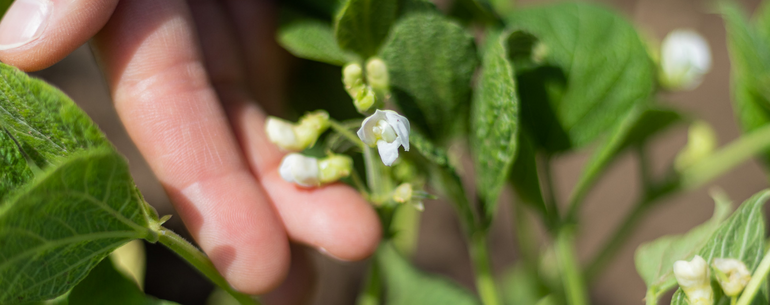The Sustainability Benefits of Beans
February 01, 2023
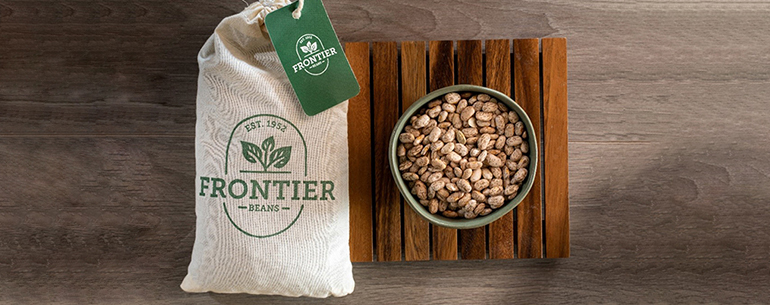
Here at Northern Feed & Bean, we know how important it is to have sustainable, healthy food that tastes great. Beans are well known for all their incredible health benefits, such as promoting healthy weight maintenance and gut health while minimizing chronic disease risk. Importantly, beans also provide numerous benefits for environmental health. If you are looking for a sustainable, environmentally friendly choice that can help improve your health too, beans are the perfect solution. So, what are the sustainability benefits of beans? Let’s walk through those together.
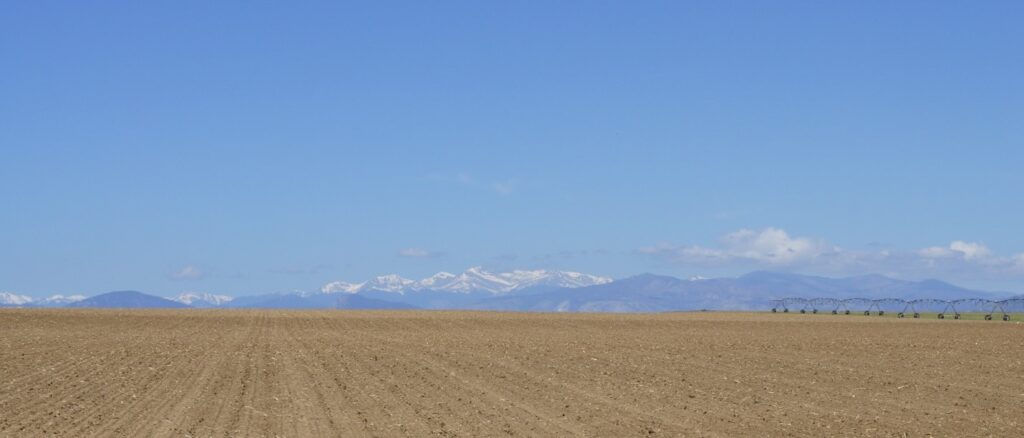
One of the beautiful bean fields planted by our farmers with stunning views of the Colorado Rocky Mountains. This photo was taken shortly after planting.
Beans Improve Soil Health
Beans can help improve soil health in several ways. For example, bean plants fix nitrogen, which is critical for plant growth. This nitrogen fixation ability means that beans do not need as much fertilizer as other crops, because they are making their own nitrogen. It also can help build up nitrogen in the soil for the crop that will follow them, allowing that subsequent crop to be healthier and require less fertilizer. Less fertilizer usage has multiple benefits, including reducing input costs for farmers and minimizing potential fertilizer runoff into our water systems, thereby improving water quality.
Furthermore, beans are often used by our farmers in crop rotation with crops such as corn and sugar beets. Growing diverse crops can help disrupt pest pressure and diseases that may occur if the same crop is grown year after year on the same land. Additionally, including beans in crop rotation can result in improved beneficial soil biology, lower weed pressure, and positive changes in soil structure and chemistry.
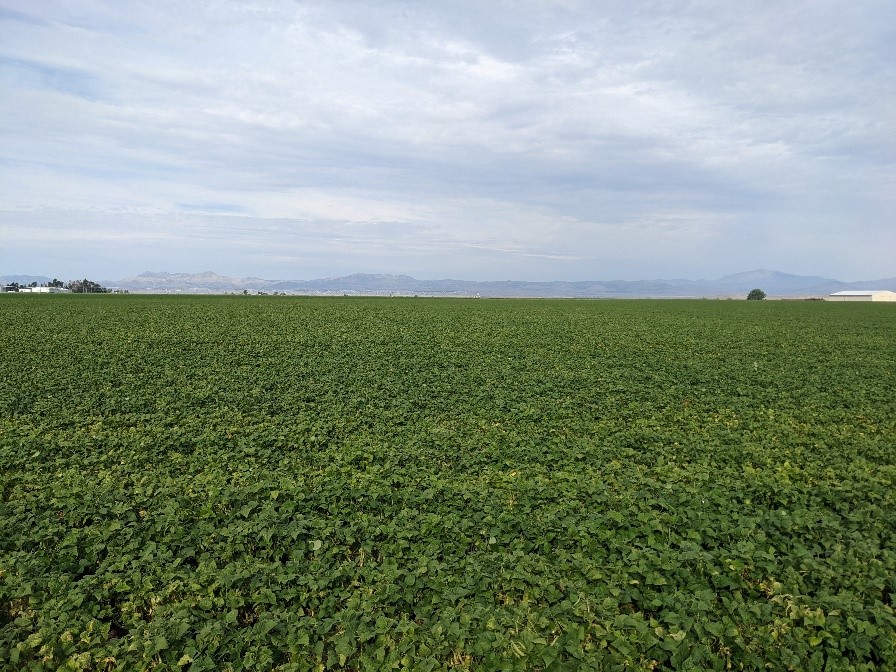
A lush bean field
Beans Help Save Water
Our farmers proudly grow beans in Eastern and Western Colorado, Western Nebraska, and Southeast Wyoming, and they know the importance of water conservation. Choosing to grow beans is one way our farmers are supporting the environmental health of their communities, because beans require less water than many other crops, such as corn and wheat. In addition, it takes less water to produce beans than other sources of protein, such as meat, milk, and eggs.
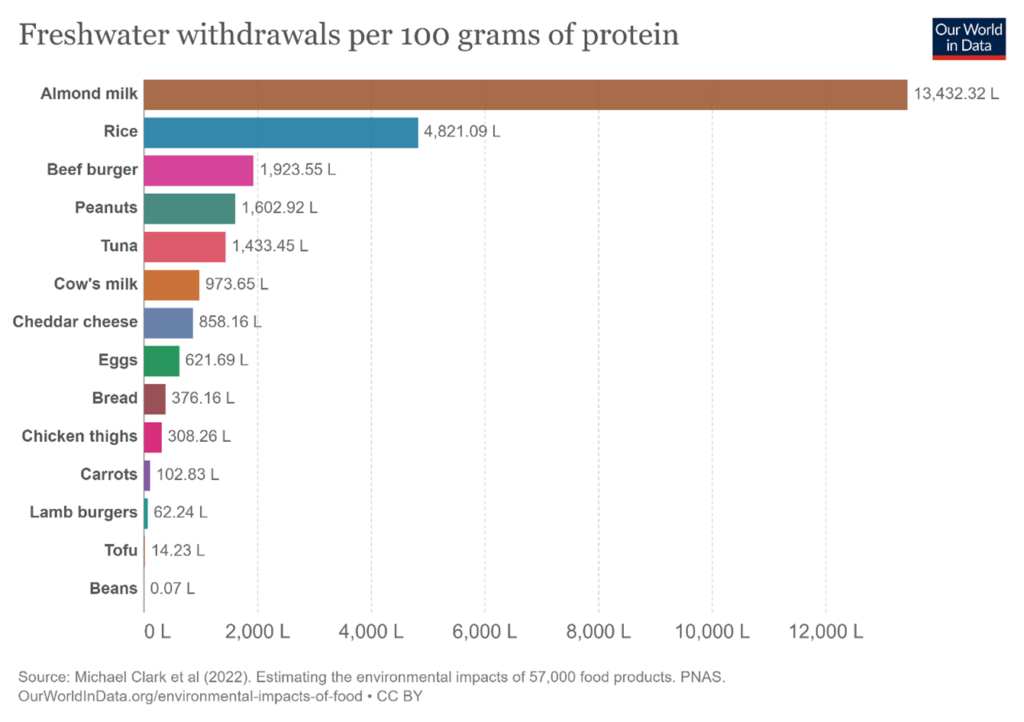
Our World in Data figure comparing freshwater withdrawals necessary for 100 grams of protein from various foods
As shown in this chart created in Our World in Data, you can see that the amount of freshwater withdrawals required to produce 100 grams of protein differs dramatically among different food sources. Beans require much less water than the other sources of protein shown in the figure, provided to us by Chelsea Didinger. For example, according to Our World in Data, 100 grams of protein in the form of a beef burger requires over 1,900 liters of water, whereas the same 100 grams of protein in the form of beans necessitates less than 1 liter of freshwater withdrawals. That is a huge difference!
Beans Can Reduce Greenhouse Gas Emissions
A key contribution of beans to sustainability is their potential to reduce greenhouse gas emissions, which can lead to climate change. Beans help lower greenhouse gas emissions in several ways. As we mentioned, due to their ability to fix nitrogen, beans do not need as much fertilizer as other crops, and they can decrease the amount of fertilizer needed by the crop planted after them in the rotation. Using less fertilizers can reduce greenhouse gases because fertilizer is responsible for a percentage of the greenhouse gas emissions associated with agriculture.
One recent study by Harwatt and colleagues (2017) compared the greenhouse gas emissions that result from beans versus beef, and they found that including beans in our dietary patterns can greatly help reduce greenhouse gas emissions and mitigate climate change. As you can see below in the figure from Our World in Data, beans have a much lower environmental footprint compared to other sources of protein. For instance, whereas 100 grams of protein from beans results in less than 1 kilogram of emissions (measured in carbon dioxide equivalents), the same amount of protein from beef results in almost 30 kilograms of emissions.
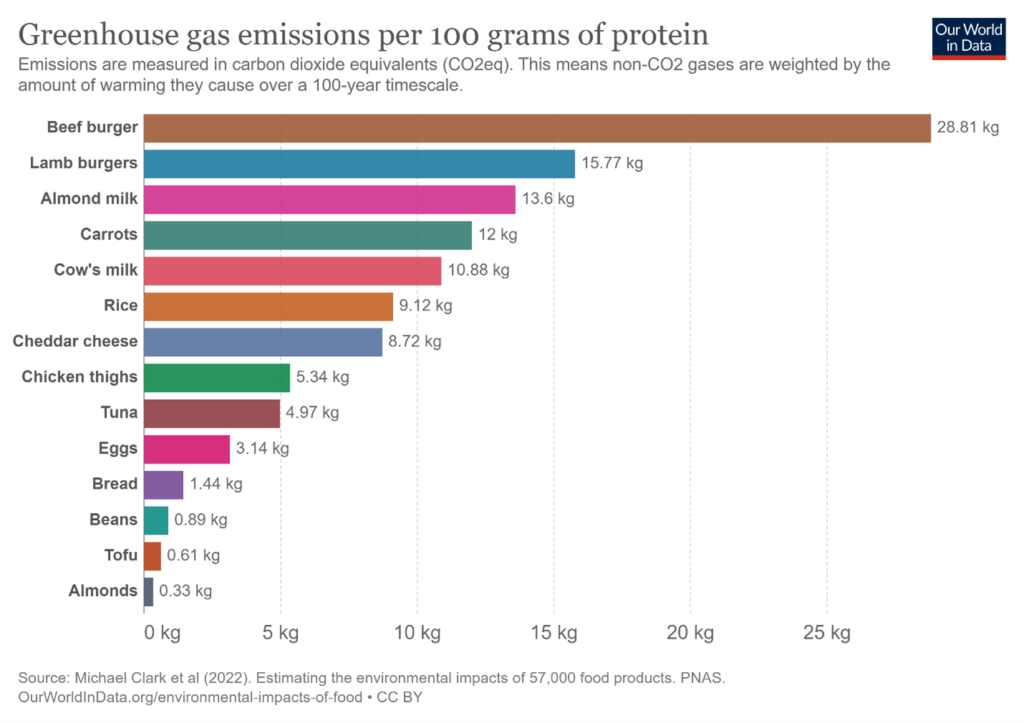
Our World in Data figure comparing greenhouse gas emissions resulting from 100 grams of protein from various foods
Other Environmental Benefits of Beans
In addition to important contributions to improving soil health, saving water, and reducing greenhouse gas emissions, beans provide several other environmental benefits. These include:
- Beans help reduce food waste. Beans have a long shelf-life, thus dry beans may be stored for several years without needing to throw them away. This can minimize food waste, which is a major contributor to climate change.
- We are constantly conducting research to improve beans. We work with bean breeders who are constantly working to develop better bean varieties through traditional breeding (not through genetic engineering, i.e., the beans are non-GMO). Thanks to their efforts, yields increase, meaning that more beans can be produced on the same acreage. This allows us to use our resources wisely and grow more food without needing more land. Bean breeders also evaluate factors such as heat and drought tolerance and natural resistance to disease so that we can grow bean varieties that require less water and can thrive even if disease pressures are present.
Northern Feed & Bean Sustainable Practices
Northern Feed & Bean strives to implement sustainable practices, and we are always working to become even more sustainable. We reduce, reuse, and recycle. For instance, we incorporate electrical and hybrid vehicles, reuse pallets and totes, and recycle scrap iron and other materials we use. We also recently launched our new cloth bags for our retail beans to minimize plastic. Moreover, we practice socially sustainable practices through supporting local businesses and donating our delicious and nutritious beans to county food banks.
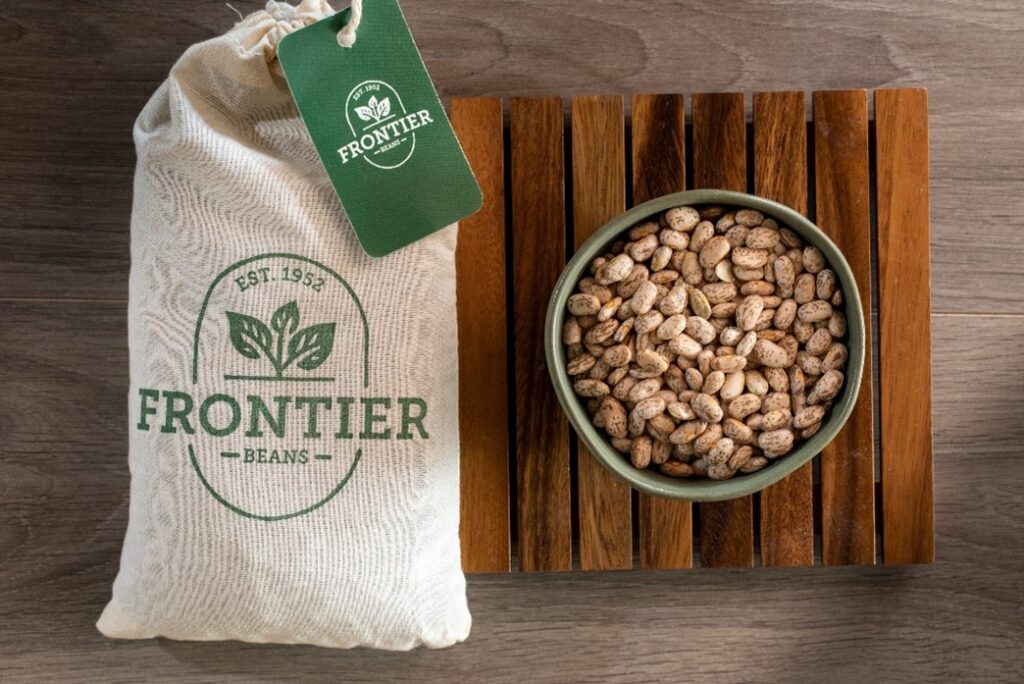
Our Colorado Proud pinto beans in beautiful cloth packaging
At Northern Feed & Bean, we are honored to work with farmers who practice stewardship of the land so that we can offer you five varieties of Colorado Proud beans: pinto beans, Mayocoba beans, black beans, small red beans, and orca beans. Choosing beans is a win-win for public and environmental health. Not to mention, our beans taste delicious, making that a win-win-win!
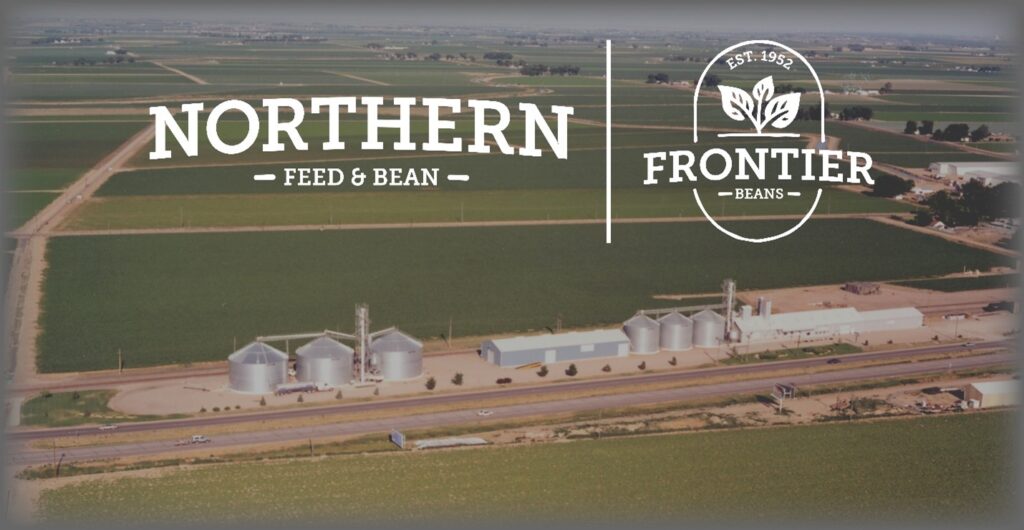
Northern Feed & Bean is proud to support the human and environmental well-being of our communities and provide you with tasty Colorado Proud Frontier beans.


